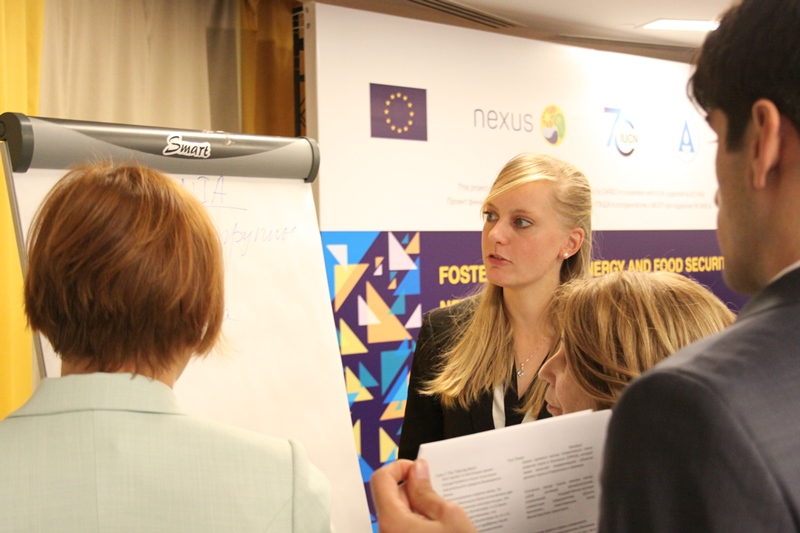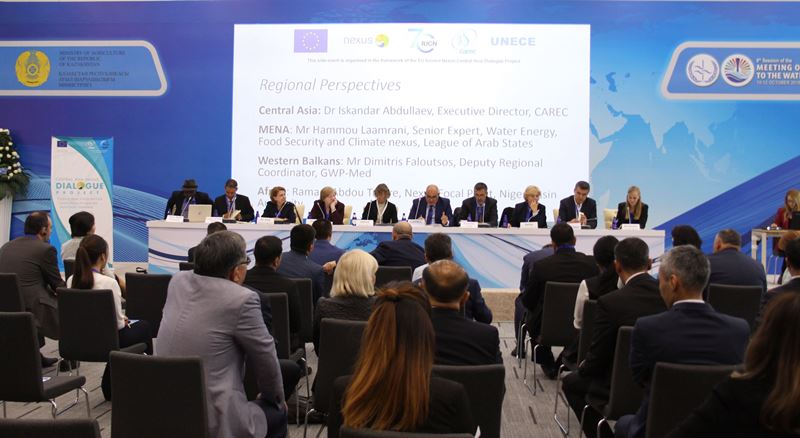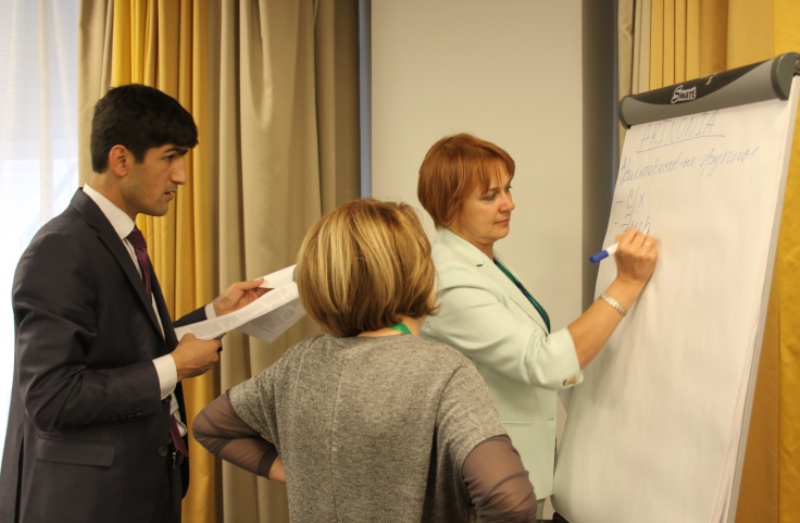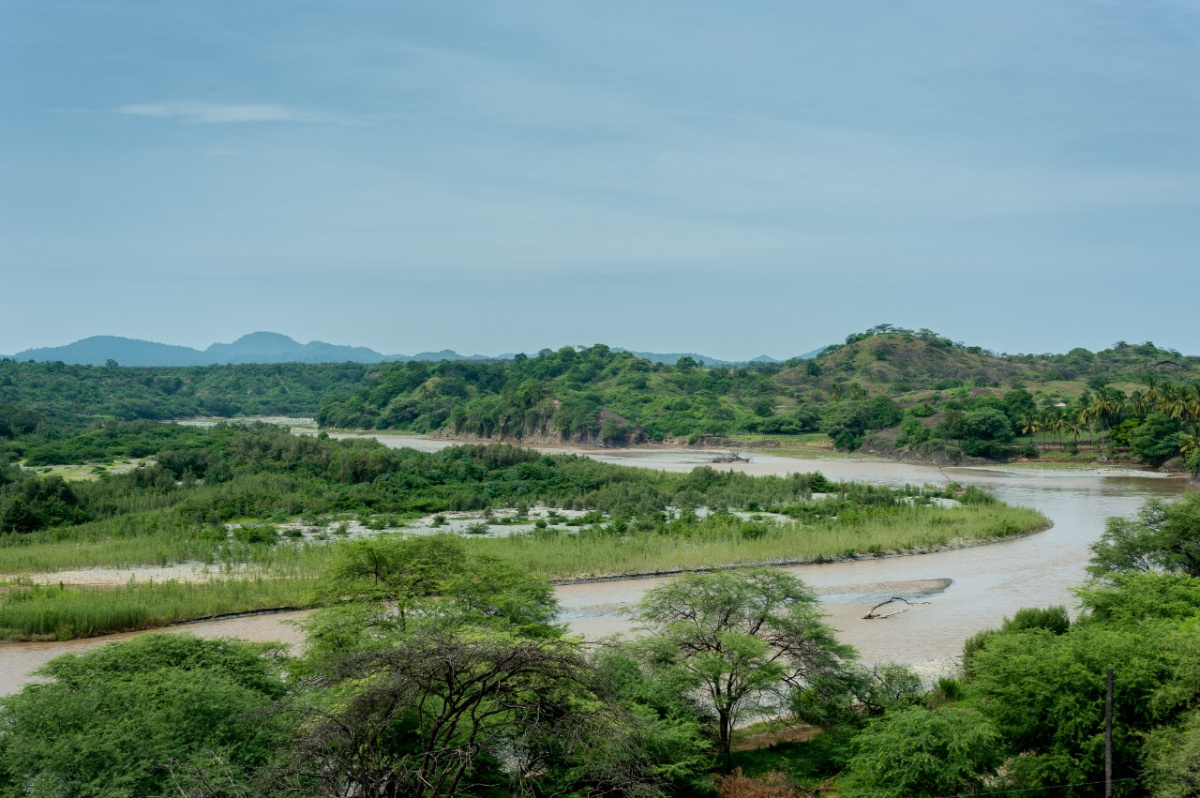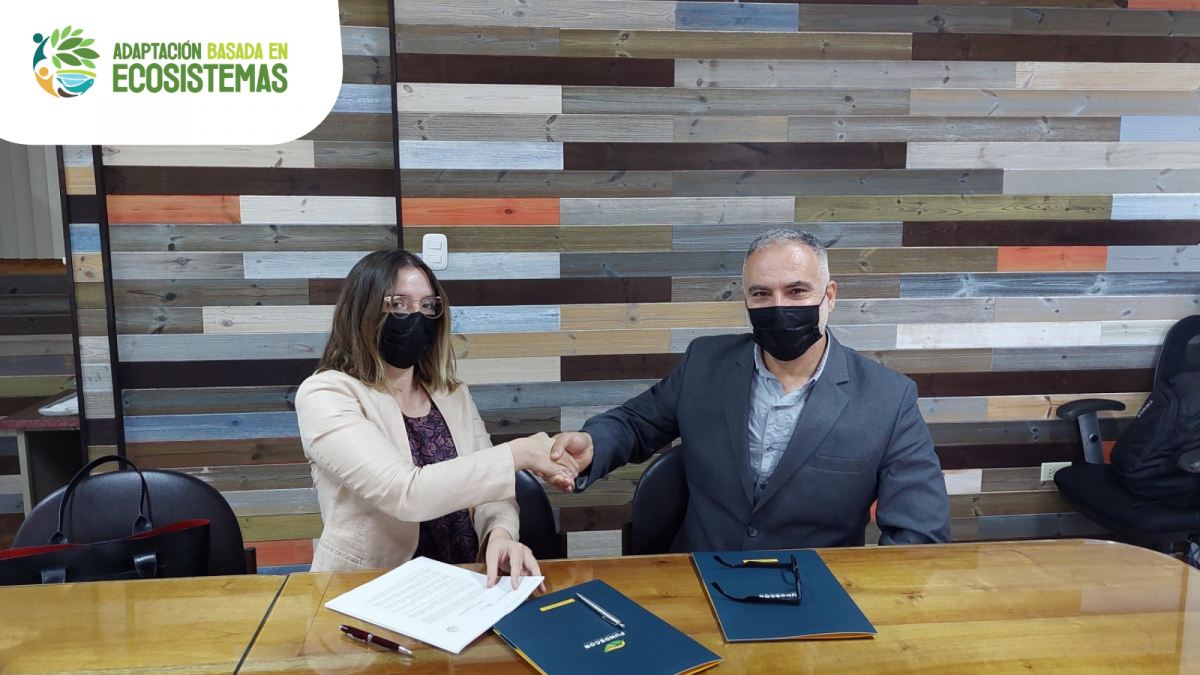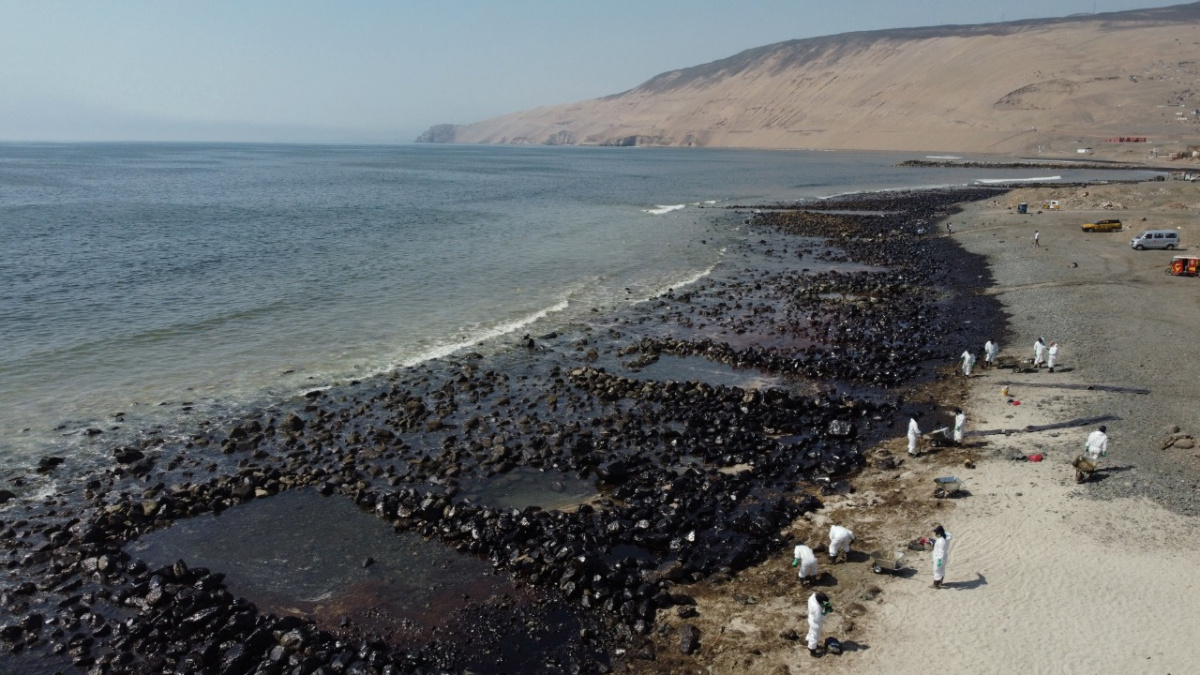Cooperating across borders for Water-Energy-Food Security
Climate change, population growth and other social and economic pressures, exacerbate demands on vital resources, such as water, energy and food. This impacts our ecosystems, often negatively, lowering their ability to provide us with their services and preserve the livelihoods of local populations. It is no longer enough to make decisions in isolation, according to IUCN.
The foreseen population increase in Central Asia - from 61.5 million in 2011 to 74.6 million in 2030 and 90 million in 2050 - will boost demand for water resources, energy and food, according to FAO. To address these challenges, the Nexus approach provides room for multi-sectoral dialogue and negotiation. Kristin Meyer, Nexus Central Asia Coordinator at IUCN ECARO explains: “Through the EU-funded Nexus Central Asia Dialogue Project, Regional Environmental Center for Central Asia (CAREC) and IUCN are working towards mainstreaming the Nexus approach into national and regional planning frameworks and strategies, so that access to water, energy and food can be improved for the people of Central Asia.”
In the framework of this project, three events took place on the sidelines of the 8th Session of the Meeting of the parties to the Water Convention held in Astana, Kazakhstan last week. The week began with a training to build capacities for multi-sectoral dialogue and investments in Central Asia. The participants learned about the concept of benefit sharing, a tool for prioritising nexus-related capital investment projects developed by the Organisation for Economic Co-operation and Development (OECD) and the WECOOP guide to attracting investments in the region. IUCN presented a simple tool that empowered participants to assess the impacts of investments on various sectors. Through practical examples, participants increased their capacity for cooperative decision-making and negotiation on a number of resource management choices.
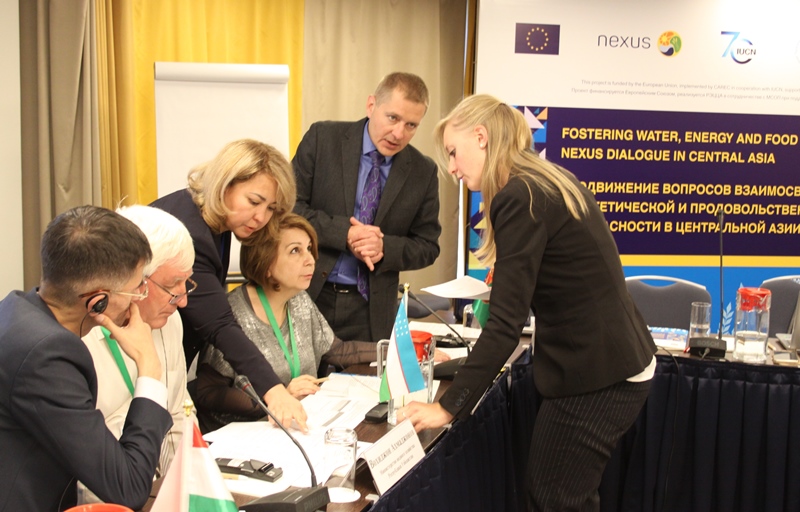 Photo: CAREC
Photo: CAREC
“The most important outcome of today’s training is that we have seen existing tools which support multi-sectoral dialogues and planning to achieve win-win outcomes and attract investments. The next needed steps – to test them through the development of practical investment projects”, stated Karl Anzelm, Committee on Water Resources under The Ministry of Agriculture in the Republic of Kazakhstan.
According to ICWC, the consumptive water withdrawal in Central Asian countries varies from 20% of available water resources (Kazakhstan, Kyrgyzstan, Tajikistan) to 80-90% (Uzbekistan, Turkmenistan). However, if the interests of water, energy and food are balanced, it is possible to achieve higher returns on investments. Trainings such as this one, enable multi-sectoral dialogue and negotiation, which are key to maximizing benefits for all stakeholders and sectors. The training inspired an open discussion on challenges and capacity needs in Central Asia, which will feed into a capacity needs assessment that IUCN is currently conducting.
On the first day of the Meeting of the Parties to the Water Convention, IUCN, CAREC and the United Nations Economic Commission for Europe (UNECE) co-organised a side event on the Water-Energy-Food-Ecosystems Nexus that brought together a diverse range of experiences from around the globe.
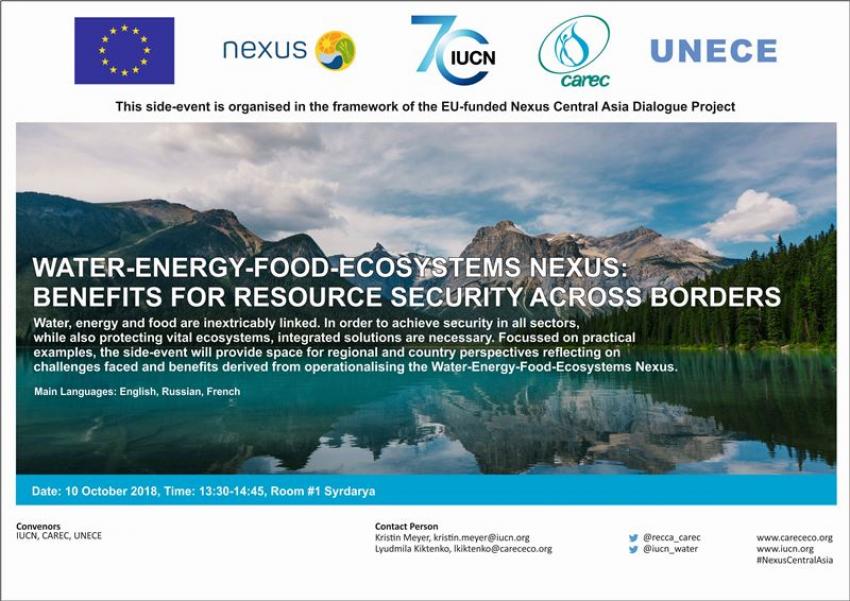 Photo: IUCN
Photo: IUCN
Country representatives, regional and international organisations shared experiences and examples on the Nexus approach in action. A lack of inter-sectoral regional organisations was mentioned as the main challenge in Central Asia, while in the Niger Basin an area of great priority is the development of clear nexus criteria for investment planning. In the Middle East and North Africa, solar power potential is seen as an important entry point for water-saving technologies and irrigation.
The Water-Energy-Food Nexus approach contributes to the solution of complex environmental and development problems and serves as a catalyst to increase returns on financial spending through sharing of benefits. Mr Claudio Bacigalupi of the European Commission clarifies: “Sharing and learning from experiences of different regions in the world can move the Nexus discussion forward and prepare for major investments. The EU Nexus Regional Dialogue Programme supports projects in Africa, Central Asia, Latin America and the Mediterranean to foster transboundary dialogue across the three Nexus sectors – water, energy and food.”
The examples provided and the ensuing panel discussion exposed the many advantages that the Nexus approach offers to countries, including increased resource security nationally and across borders. Dr Iskandar Abdullaev, Executive Director of CAREC noted: “Environment, development and human needs are interlinked. We cannot go ahead with business as usual approaches; inter-sectoral, nexus approaches are key for long-term, sustainable decisions.” Yet, negotiating different sectoral interests is no easy task and greatly depends on the specific context. Illustrative is the case of the Western Balkans, where cooperation between the energy and water sectors not only prevents floods but also attracts the attention of high-level decision makers. By sharing regional and country-specific stories and perspectives, this side event revealed the Water-Energy-Food Nexus as a platform that promotes cooperation, especially where resources are shared between countries.
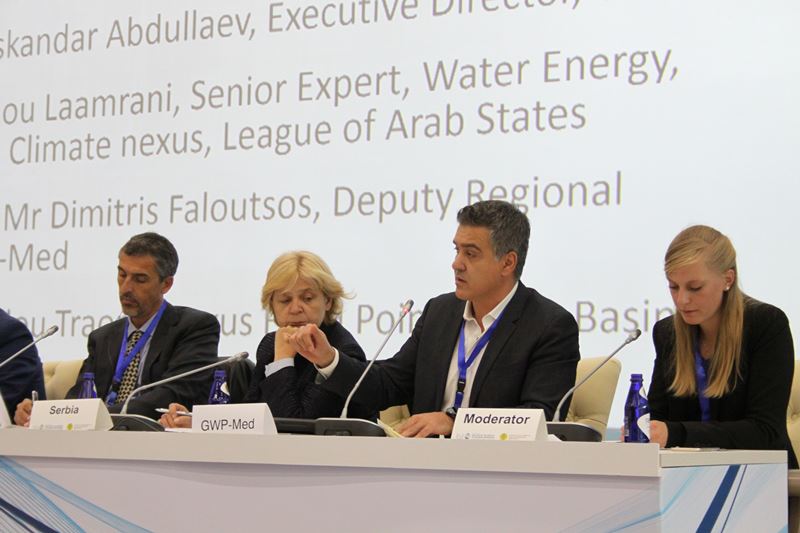 Photo: CAREC
Photo: CAREC
The week concluded with the third meeting of the Regional Steering Committee dedicated to the development of a portfolio of investment projects to foster water, energy and food security in Central Asia.
Six investment project ideas elaborated through consultations in countries and with regionally recognised experts in Central Asia provided ample dialogue on the potential of proposed solutions to foster water, energy and food security in the region. Project proposals considered a wide range of issues, including sustainable afforestation of the dried bottom of the Aral Sea, modernization of the water management system and facilities, improvement of reclaimed irrigated lands in the basin of the Amudarya and Syrdarya rivers, integrated development of eco- and agro-tourism, sustainable water and energy supply. The most promising project proposals will be discussed and further developed together with the countries and International Financial Institutions.
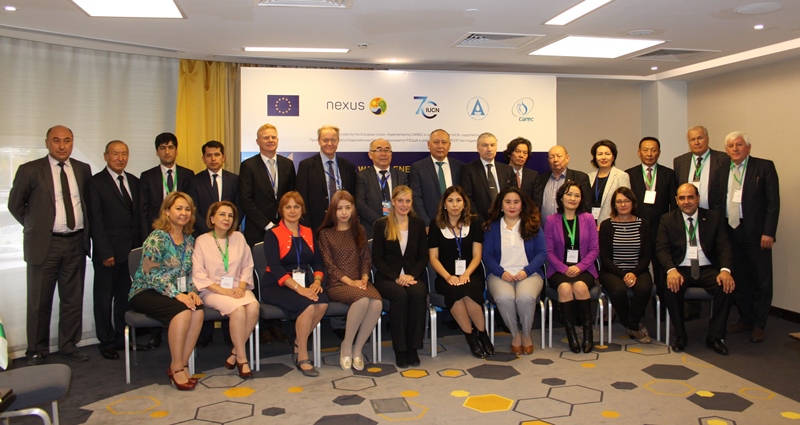 Photo: CAREC
Photo: CAREC
“The implementation of at least one of the selected projects will prove a practical transition of Central Asian countries from an individual search for solutions to water, energy and food security to a joint one for the stable development of the region. Such a transition is crucial,” stated Sagit Ibatullin, Expert of EU Nexus CA Dialogue Project.
The Regional Steering Committee also discussed capacity needs in Central Asia for strengthening dialogue and preparing for the implementation of multi-sectoral investment projects. A capacity development scorecard was used to quantify capacity needs in the region. Three areas requiring strengthening stood out: a lack of a legal mandate at the regional level, a lack of knowledge and expertise and a lack of information and data. In the coming months, IUCN will build on the results from this assessment and prepare a capacity development plan in support of institutional and human capacity building on the nexus approach in Central Asia.
